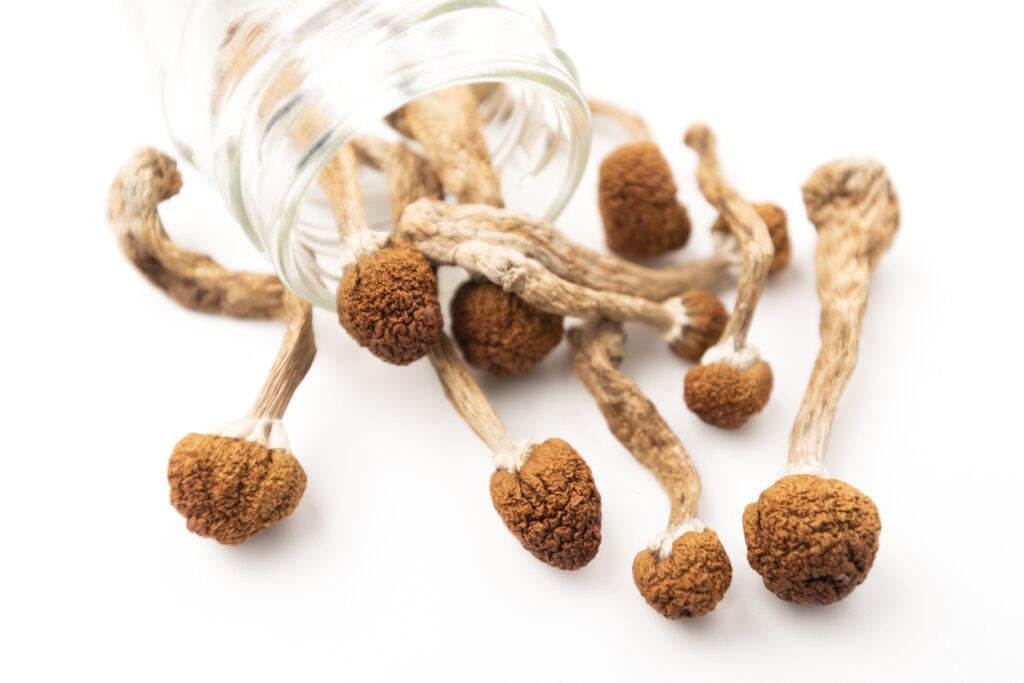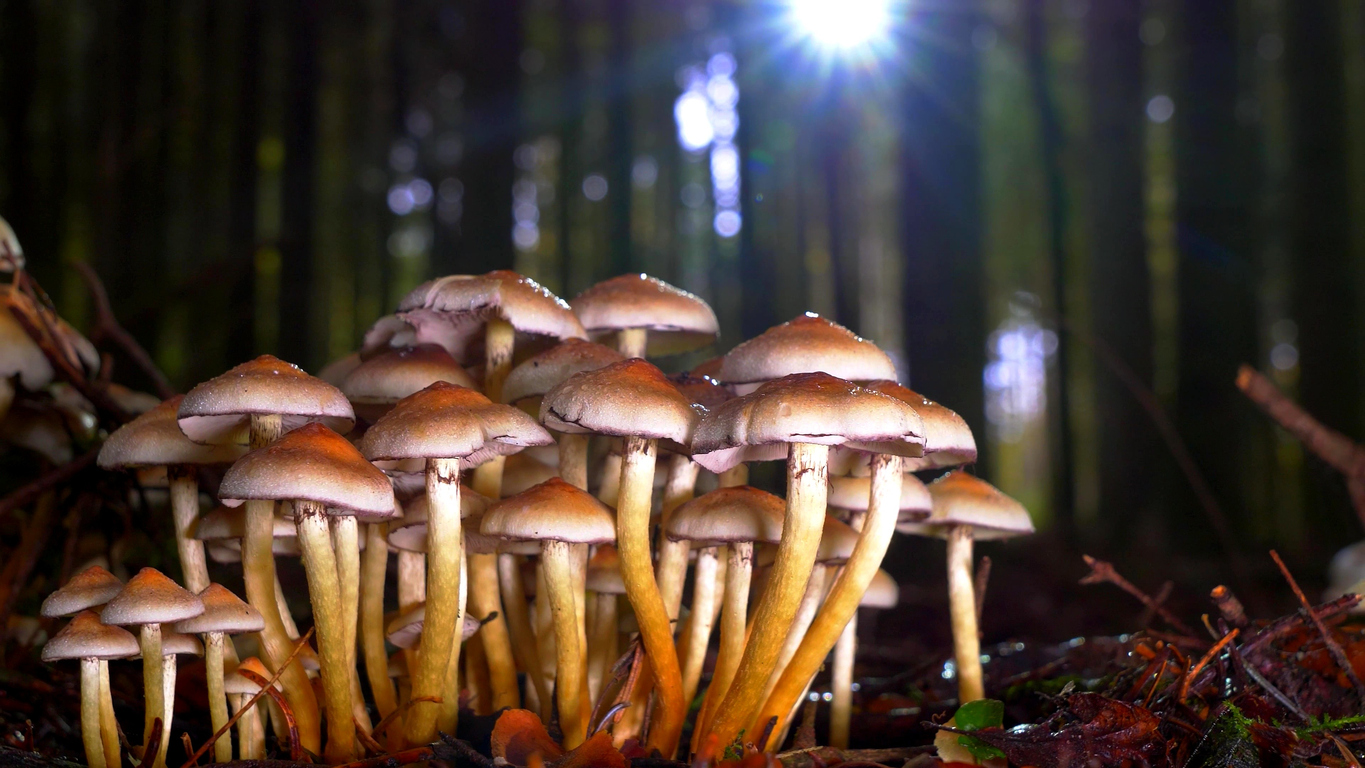Are magic mushrooms addictive? Let’s take a look and find out how psilocybin affects the brain, its impact on psychological dependence, and the emerging research on its therapeutic benefits. Learn more about responsible use and how microdosing might help manage mental health without leading to addiction.
Are Magic Mushrooms Addictive?
Table of Contents
Psilocybin mushrooms (aka magic mushrooms) have gained attention for their psychedelic effects and potential therapeutic benefits in recent years. According to the journal Addiction, the use of psilocybin and other hallucinogens among adults aged 19-30 nearly doubled between 2018 and 2021 (6.6% of that demographic was using it in 2021 compared to 3.4 in 2018). By 2023, it was the most popular hallucinogen, according to the RAND Corporation.
Despite the growing interest, there are ongoing concerns about the misuse and potential for addiction associated with hallucinogens like psilocybin. So let’s separate the facts from the myths to understand the true nature of the substances.
How Psilocybin Affects the Brain
Psilocybin mushrooms contain a compound–like the name suggests–known as psilocybin. When you consume the mushrooms, your body converts psilocybin into psilocin, which then interacts with the brain’s serotonin receptors. That interaction may lead to noticeable changes in how your brain processes information.

The effects of psilocin may alter your sensory perception, leading to experiences such as vivid visual or auditory distortions. The changes in perception and thought are known to be quite profound and introspective. Respondents to a study by the National Library of Medicine said they used psychedelics for “mystical experiences, and introspection.” While those effects may be enlightening for some, they could also lead to uncomfortable experiences, known as a bad trip, if the experience is unsettling.
Research also suggests that psilocybin may have potential benefits for mental health. Studies are exploring its use in treating conditions like depression and anxiety, particularly when used under professional medical supervision. Additionally, psilocybin is being researched for its potential to treat various mental health disorders, including addiction and other interconnected mental health challenges.
The Truth About Psilocybin Mushroom Addiction
When discussing psilocybin mushrooms, it’s important to distinguish between addiction and dependence. Let’s break that down in simple terms. Additionally, we must consider the implications of psilocybin mushroom use and its potential to lead to substance abuse.
Addiction vs. Dependence
Unlike substances like alcohol or opioids, psilocybin mushrooms are not known to cause physical addiction. It means they don’t create the same physical cravings that substances like alcohol or opioids do.
Instead, the concern with psilocybin mushrooms is more about psychological dependence. That refers to a situation where someone feels a mental or emotional need to use the substance, even though they aren’t physically craving it. Fortunately, research suggests that psychological dependence on psilocybin mushrooms is quite rare compared to other drugs. However, despite the low risk, there is still a potential for psilocybin mushrooms to lead to substance use disorder in some individuals.
Substance Use Disorders and Psilocybin
Studies show that while psilocybin mushrooms might change your mental state, they don’t typically lead to severe substance use disorders like some other drugs. That means they don’t usually cause the same level of problematic use seen with substances — eg, alcohol heroin, barbiturates, etc – known for addiction. However, abusing psilocybin mushrooms can lead to varying effects and potential dependency, making it crucial for individuals facing addiction to seek professional help.
Hallucinogen Persisting Perception Disorder (HPPD)
Well risk for addiction is minimal, there are still some potential risks when it comes to magic mushrooms and other psychedelics. There is a rare condition called hallucinogen persisting perception disorder (HPPD) where users continue to experience visual distortions long after using hallucinogens like psilocybin mushrooms. While the disorder could be unsettling, it is not the same as addiction and is much less common.
The Effects and Risks of Psilocybin Mushrooms
Here’s a detailed list of the effects and risks associated with psilocybin mushrooms:
Effects of Psilocybin Mushrooms
- Profound Insights: Users often experience deep spiritual or personal insights, which get transformative.
- Unsettling Experiences: The experience may sometimes be distressing or uncomfortable, commonly referred to as a “bad trip.”
- Altered Perception: Changes in how you perceive reality, leading to vivid visual and emotional experiences.
- Behavioral Influence: Intense emotional and perceptual changes might impact behavior and mental health, depending on the setting and individual.
Risks of Psilocybin Mushrooms
- Psychological Effects: Psilocybin mushrooms do not cause physical dependence, unlike substances such as alcohol or opioids, but they may lead to psychological issues, especially if used improperly or excessively. Users can experience significant psychological withdrawal symptoms when they stop using the substance, which can hinder recovery and lead to further addiction. It may also increase the onset of certain mental illnesses like schizophrenia if the individual is predisposed to them.
- Potential Misuse: Misuse of psilocybin mushrooms might affect personal and professional life, causing emotional distress or panic attacks.
- Drug Interactions: Interacting with other substances may lead to unpredictable and potentially harmful effects.
Let’s Talk About Microdosing and Its Potential Impact
Microdosing has emerged as a popular approach in the world of psychedelics, including psilocybin mushrooms. The practice involves taking very small, sub-perceptual doses of a psychedelic substance, typically around 1/10th to 1/20th of a typical recreational dose. Advocates suggest that microdosing offers various mental health benefits without the intense effects of a full dose. But does microdosing help avoid dependence or addiction? While it may help reduce the risk of psychological dependence and addiction due to its low and infrequent dosing, more research is needed to confirm the benefits and understand the long-term effects. If you’re considering microdosing, approach it responsibly and with a clear understanding of the potential risks and benefits.
Psilocybin Mushroom Use and Addiction Treatment
Although psilocybin mushrooms themselves are not typically addictive, those who use them excessively might benefit from addiction treatment programs. Such programs often focus on addressing underlying mental health conditions and providing support groups for emotional support.
Addiction treatment for psilocybin mushrooms primarily involves addressing psychological addiction and ensuring that users have access to appropriate mental health services. The Drug Enforcement Administration and the National Institute have conducted studies to better understand the impact of psilocybin mushrooms on mental health, which contributes to more effective treatment options.
Emerging Trends in Psilocybin Research
Recent research has explored how psilocybin affects mental health conditions such as depression and anxiety. The studies are often conducted under controlled conditions with close monitoring to ensure safety and effectiveness. A recent study conducted by The Harris Poll and Delic Holdings Corp actually found that the majority of its respondents (65%) want access to psychedelics for mental health.
Organizations like the National Institute and Mental Health Services Administration are leading efforts to explore the therapeutic potential of psilocybin mushrooms. Their research focuses on understanding the effects of psilocybin on substance use disorders and other mental health issues.
Potential of Psilocybin with us at Hallucinogenics
At Hallucinogenics, our mission is to promote the benefits of psychedelic substances, including psilocybin, while ensuring safety and mindfulness in their use.
Our Commitment to Responsible Psychedelic Use
We are dedicated to helping individuals responsibly explore the potential of psilocybin mushrooms. We believe that through safe and intentional use of our products—whether they contain psilocybin, LSD, or DMT—people can experience profound personal growth and gain insights into expanded states of consciousness. We aim to support you in meaningfully integrating the experiences into your daily life.
We encourage you to approach our products with respect and mindfulness, recognizing their power to inspire and transform.
Connect with Us
We love discussing all things psychedelics! If you have any questions or want to learn more about how psilocybin might fit into your life, feel free to reach out.
Our team is here to provide guidance and answer any questions you may have about the safe use of psychedelics.
Serving Canada
Please note that Hallucinogenics currently serves clients and customers across Canada, including British Columbia (BC), Alberta, Saskatchewan, Manitoba, Ontario, Quebec, New Brunswick, Nova Scotia, Prince Edward Island (PEI), Newfoundland and Labrador, Northwest Territories, Nunavut, and Yukon. If you’re in the listed regions and interested in exploring the benefits of psychedelics responsibly, we’re here to help.
FAQs
1. Are there any clinical trials underway for psilocybin?
Yes, numerous clinical trials are underway to study the effects of psilocybin on various mental health conditions. The trials aim to understand its efficacy in treating depression, anxiety, and substance use disorders.
2. What role do government agencies play in psilocybin research?
Government agencies like the National Institute and the Mental Health Services Administration fund and oversee research on psilocybin mushrooms. They ensure that studies are conducted ethically and contribute to developing evidence-based treatment options.



